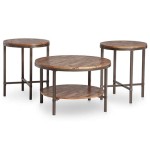What Is a Table Plan?
A table plan is a diagram or chart that outlines the seating arrangements for a dining event, such as a wedding reception, corporate dinner, or any other formal gathering involving a seated meal. It helps to ensure that guests are efficiently and comfortably seated, creating a welcoming and organized atmosphere.
Components of a Table Plan
A comprehensive table plan typically includes the following components:
- Guest list: A complete listing of all attendees, including their names, titles (if applicable), company affiliations, and any special seating preferences.
- Table assignments: Each guest is assigned to a specific table, indicated by numbering or naming the tables.
- Table layout: A diagram representing the layout of the room, including the arrangement of tables, chairs, and any other furniture.
- Seating arrangements: The positioning of guests at each table, ensuring that they are seated in a way that facilitates conversation and interaction.
- Additional information: Any additional details that may be relevant to the seating arrangements, such as dietary restrictions, allergies, or special needs.
Purpose and Benefits of a Table Plan
A well-planned table plan offers numerous benefits for both the event organizers and attendees:
- Organized seating: Ensures that all guests have designated seats, eliminating confusion and overcrowding.
- Efficient service: Facilitates smooth table service, allowing food and drinks to be delivered efficiently.
- Comfortable ambiance: Assigns guests to tables with compatible companions, enhancing the overall dining experience.
- Personalized experience: Acknowledges the importance of each guest by providing them with a specific seat.
- Increased guest engagement: Strategically seating guests together fosters conversation, networking, and relationship building.
Steps for Creating a Table Plan
Creating a successful table plan requires careful planning and attention to detail. Here are the key steps to follow:
- Gather guest information: Collect guest names, preferences, and any necessary dietary restrictions or seating considerations.
- Determine table layout: Plan the layout of the room, considering the number of guests, table sizes, and overall ambiance.
- Assign guests to tables: Consider guest compatibility, relationships, company affiliations, and any special arrangements.
- Create a visual representation: Draw a diagram or chart to illustrate the table plan, clearly indicating table numbers and seating arrangements.
- Communicate the plan: Share the table plan with guests ahead of time, providing them with ample notice of their seating assignments.
Conclusion
A well-crafted table plan is an essential element of any formal dining event. It optimizes seating arrangements, enhances guest experience, and creates a comfortable and organized atmosphere. By following the steps outlined above, event organizers can ensure that their table plans effectively meet the needs of their guests and contribute to the overall success of the occasion.

Classroom Seating Plan Template Table

Our Top 30 Tips For Arranging Your Seating Plan

Wedding Table Plan Or Seating Chart By Jo Cardiff

How To Create A Seating Chart For Wedding Or Event Plans Table Plan Arrangement

Table Seating Plan Hints For Weddings And Events

Wedding Planning Seating Table Plan With 4 8 Tables Including Top Made By A Bride Ahoy Designs

How To Seat Guests At Your Wedding Breakfast

Minimalist Mounted Table Plan

5 Ideas For A Table Plan

Table Plan For Your Wedding Party Or Event Free Trial
Related Posts








